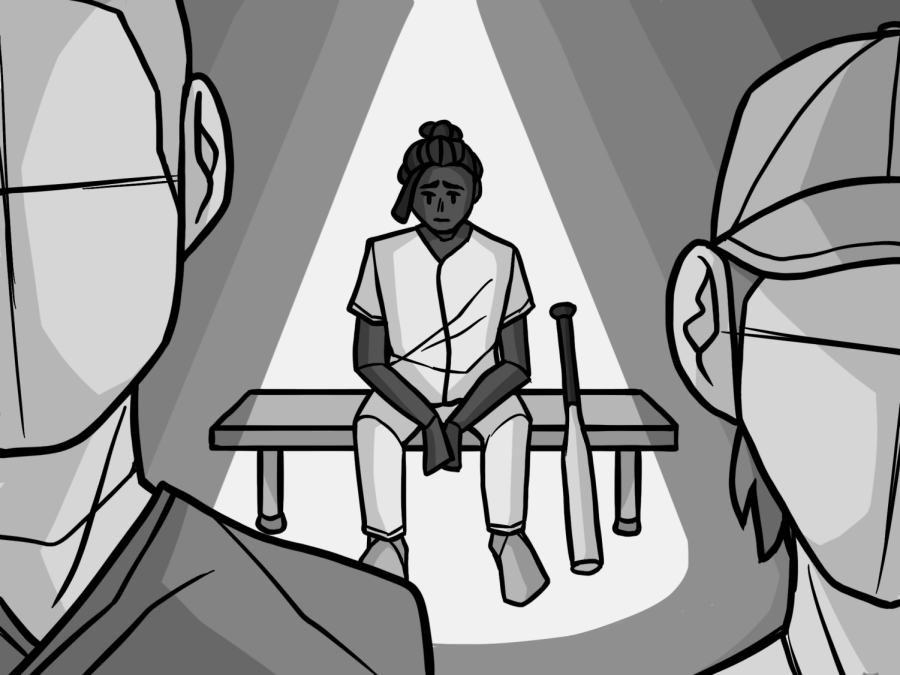SPORTS: Athletes share their stories with discrimination
Athletic discrimination is a belief that people of certain backgrounds, whether that be on the basis of race, ethnicity, culture, religion or gender can be inferior as an athlete. Some SCHS students input that discrimination can be shown in many different forms, all equaling the same thing: hate.
A handful of students shared their stories of discrimination.
When she was little, sophomore Preesha Vaswani experienced sexist discrimination when she played football. Vaswani is glad that girls playing football, a male-dominated sport, is more standardized today.
“I wasn’t even allowed to play sports or was always the last pick solely because I was a girl,” Vaswani said. “I was a quarterback, but it was very controversial that I was a quarterback because I was a girl. Now, I think it’s more normalized because you see girls on football teams a lot more often.”
Girls playing various sports is common nowadays. Many, however, believe that female athletic participation is overlooked when compared to its male counterpart. Sophomore Danna Guerrero Tapia, a member of the girls JV basketball team, noted there was a lack of support at the girls basketball games compared to the boys.
“I noticed that there’s less people watching girls basketball than there is in boys basketball,” Guerrero Tapia said. “People think in boys basketball they go faster than girls basketball.”
Vaswani thinks that people are discriminatory toward certain genders due to predispositioned athletic standards. She suggested competition may cause some to have mistaken perceptions of athletes.
“When this competitiveness comes in, they want to have the best people on their team to win and so they try to pick the people that would be the ideal fit, and sometimes girls are not in their options,” Vaswani said.
On top of gender inequality, some students believe race plays a big factor regarding discrimination in sports. Freshman Marcelo Aguilar feels that society often views athletes based on their skin tone not their talent.
“Even though coaches and other people see them as a good athlete, they also see the athletes as they are based on society,” Aguilar said. “Then they don’t see the athlete as how they play everyday.”
Senior Joshua Antony takes into account that along with race, money is also a factor in athletic discrimination. He believes that depending on the sport, only certain people can afford to participate and play considering high expenses.
“Hockey is predominately white and it’s pretty expensive to play, so only really rich people can play hockey,” Antony said. “There might be discrimination in some sports, but I think it varies from sport to sport.”
Antony believes one’s wealth plays a huge factor in the world of athletics, and that people look at athletes’ appearances and create assumptions about their athletic ability. He feels athletes with better equipment are presumed to be better at their sport.
“People have this tendency to see people with top-notch gear, so they must be better since they spent a lot on the sport than people with more run-down clothing,” Antony said.
Religion also plays a role in discriminatory acts, according to Vaswani. She feels athletes with certain religions who wear certain clothing are more overlooked than others when that clothing is a part of their culture or religious practice.
“I think people who are required to wear certain clothes because of their religion, they’re often looked at as weird,” Vaswani said. “They’re wearing different articles of clothing that other people can’t wear. They can’t wear the uniform because of their religious values.”
Antony believes that having diversity everywhere, including sports, is what makes a team, and nobody should fear facing discrimination.
“Make whatever team you’re in an inclusive and welcoming environment for people with different backgrounds,” Antony said.


